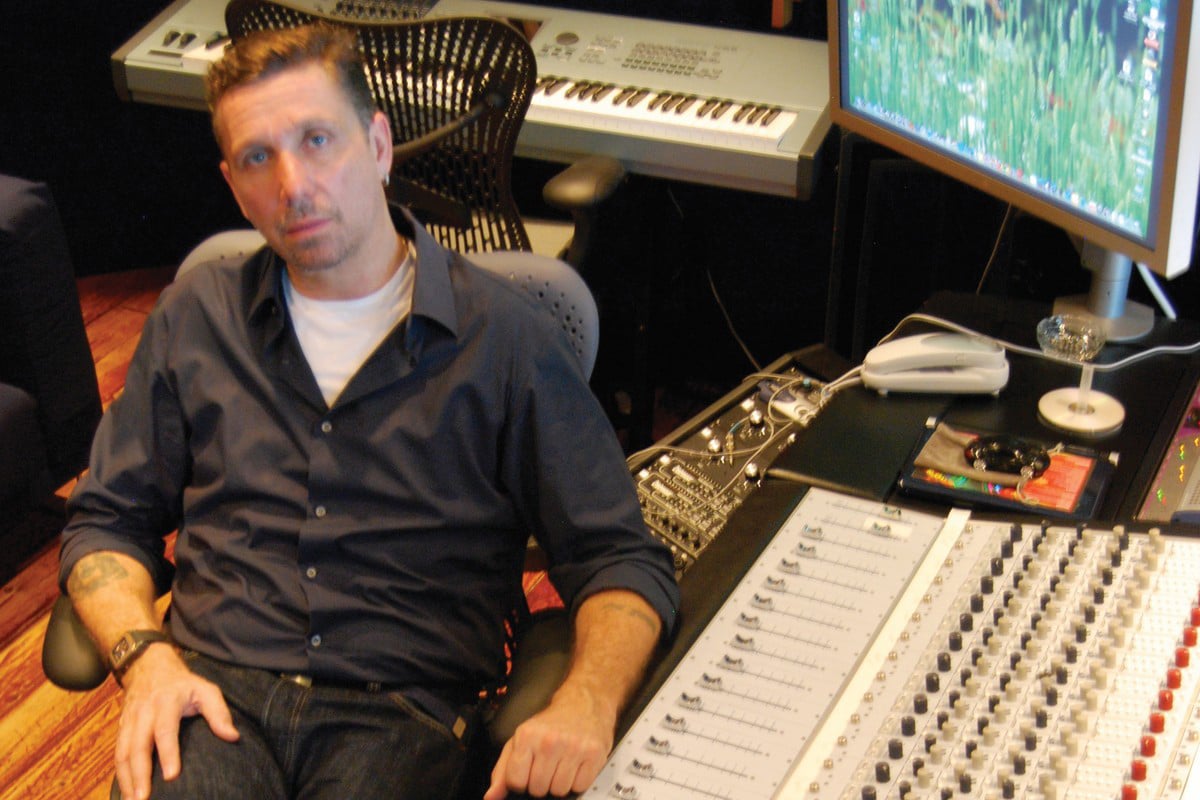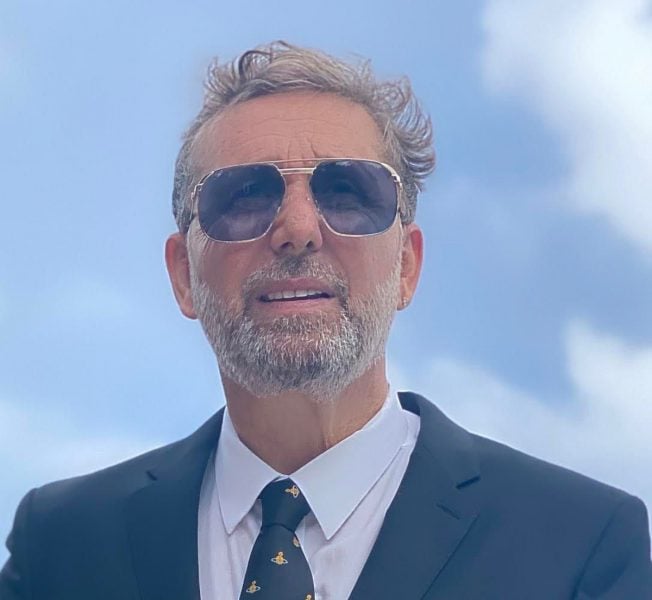Jon Baker: Gee Street Records To Geejam Hotel And Studios

Jon Baker is currently in the UK setting up a new Headquarters for his company. It’s familiar ground for him but he still keeps an eye on his luxurious hotel in Port Antonio, Jamaica. Baker has been in the entertainment industry since the 1970s and his work ranges from fashion to Punk music, Hip Hop, Pop, Reggae, Dancehall and Rumba music.
Jon, along with his business partner Steve Beaver, cashed out of the music industry to build one of the leading hotels in Jamaica, Geejam. The majestic Jamaican resort and recording studio is where the likes of Rihanna, Drake, Diplo, and Amy Whinehouse have made some of their biggest hit records.
In this conversation, we talk about how to turn cultural capital into financial capital and how artists can expand their audiences all while being authentic.
Hey Jon, how are times treating you?
Good, it is a time for regrouping. I decided to have my next base in the UK. It’s interesting because I prided myself that I’d never live back in the UK but I am setting up my HQ here. I have been focusing on taking Geejam to another level.
You did a lot of work in the UK with Doug E Fresh and Slick Rick back in the day?
Yes, I went to Disco Fever in the Bronx and saw the burgeoning hip hop scene. And from there a good friend of mine decided she wanted to do a club night downtown and she did it in Club Negril and hired me as a doorman to give out fliers on the downtown hip scene. That was really the first nightclub that the Hip Hop scene came out of. It was called Club Negril on 2nd avenue and 11th street. It was an incredible time to be in New York. What stayed with me the longest has been the whole hip hop scene and now they like Geejam as well.
Pete Edge who is now the chairman of RCA, he knew I was into the hip hop scene and starting an independent hip hop label in England and he linked me up with Doug E. Fresh and I put together a club tour in 1985. Pretty Early in the game.
You were also in fashion?
I went to Chelsea School Of Art to do a course in fashion and photography. It was in 1977 during the punk explosion. We were given a mandate that we didn’t have to do things the conventional way. It was an empowering experience and my mother was a seamstress in world war 2. She became a very celebrated British fashion designer, so I did that for a few years but when I went to New York I had to make a decision to focus on music. Then I set up my label heavily influenced by my New York experience.
You found similarities between the fashion and music industry?
Yes, its trends, its lifestyles. In a way that’s one of the things that inspired me when I started to visit Jamaica, the whole reggae and dancehall scene was always fashion orientated and the Jamaican statement in fashion has always been very strong. They have done things with fashion and colors that you have never seen in your life. It’s pop culture whether it’s the music aspect or fashion or the political times and the forces that influence the kids and create these tribes. Music is the way to enter into your soul. More than film, it infiltrates your whole body and every vibe. It’s all about emotions…all interconnected.
What was your first hit song?
Hits are relative, if you talking British charts its Richie Rich meets the Jungle Brothers I’ll House You which went top ten in the UK. I had a lot of cool underground hits like Richie Rich Salsa House in the late 80s. Geestreet was never a hit factory but we held our own in sales and every year or so we had a big record. When I moved the whole label to New York when Chris Blackwell bought the label they wanted me to move back from England and set up a division over there which included Geestreet and Island Records and that’s when I started to immerse myself in the Early 90s. I worked with Shakka Deemus and Pliers, Luciano, Beenie Man and signed Doug E. Fresh for the first time.
What was it like working with Chris Blackwell in those days?
Chris has been the biggest influence in my life career wise and as a mentor. He could see what I built as an independent and he could reference it to what other people in the independent world had done including (Richard) Branson. We had the Midas touch during that time.
Clarks recently launched a Jamaica Campaign, did you see that impact in the music industry coming up?
Of course Clarks we were wearing in the 90s. It wasn’t just the dancehall scene it was always the conscious rasta scene who wore their Clarks. It’s not just Clarks there has always been an assimilation when somebody puts on a shoes or belt with a little swag then boom it becomes part of the uniform. Fashion is a pure circle and music is too.
You have seen records, cassettes, cds and now we have streaming, do you think streaming is good for the music industry?
Put it this way, I sold my record label to Richard Branson towards the end of 1999 beginning of 2000, I got very bored with the industry and didn’t like where it was going. I certainly didn’t sell it for as much as I’d hoped and the reason being is Napster had just shaken up the industry. It was a rough time and it started to make sense as a viable business around 2013 when they introduced streaming and paying monthly for music. What happened in the music industry in the last few years is Bonkers. Suddenly the whole financial world has turned to IP and copyright. Everyday you see someone selling their catalogue and loads of other models coming out. So streaming has brought back the confidence (in the music industry). As an old schooler I love Vinyl but you can still do that. I think it’s the savior of the business and it has its flaws like anything else.
Do you own your masters still?
No, I am entrepreneurial and as much as it’s been a positive for me, I made some bad decisions. What I sold my label for and my masters for and what they are worth now…but the money I get I developed Geejam and put my kids through school.

How do you suggest Reggae and Dancehall acts sell more records?
Throughout my career, I have been instrumental in trying to promote reggae and I did the first signing with Kimani Marley, I did all the Luciano, Beenie Man early records and we were having success. I find the organization of the business very disenfranchised. It was like that back in the early 2000 and the 90s and it is like that today. There doesn’t seem to be any organization or corporation between the different players in the business and that’s disheartening. If you are internally strifing how can you go out there and be a major force ?
I think Chronixx, Protoje, Blvk H3ro they are doing the right thing. They are sticking to it and getting their TVs in America, they are being very diligent in their work and transcending into the new online media. There will be more people popping. For the influence of Jamaica and the influence of reggae globally sales may only be 1% but the influence is huge. That’s difficult to monetize but that’s an incredible thing in itself.
A lot of hit songs were made at Geejam, it’s a creative place, what are your future plans for Geejam?
When people stay at Geejam they have some background history of myself and Steve, my business partner and we come from the music industry. There is always something in terms of production going on there. It’s an experience for people who are not in the industry. Now with our new Rumba rooms named after the Rumba Box there are some incredible archives and it’s about being immersed in the creative culture.
Any advice for Jamaican and Caribbean creatives?
Authentic. Be honest about what you are dealing with and what it is. You can’t kid yourself that it’s gonna be a huge breakout record if it’s for different market. Yes you can do hybrid if you create a fan base and a ground swell you will be amazed at how that can virally take you to places you never imagined.
It’s about being true to the country and being true to what Jamaica is special for.
Who are you listening to now?
Blvk H3ro, Joy Crooks, Georgia Smith, we did a collaboration with Oliver Rodigan. He put a team of artists and producers together called Voices OF Jamaica. A Lot of that sound I am enjoying.
Jon Thank you so much
Thank You.
